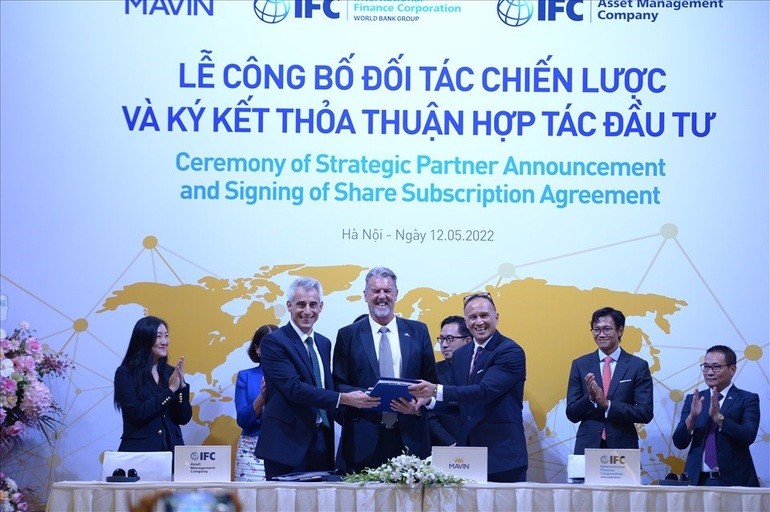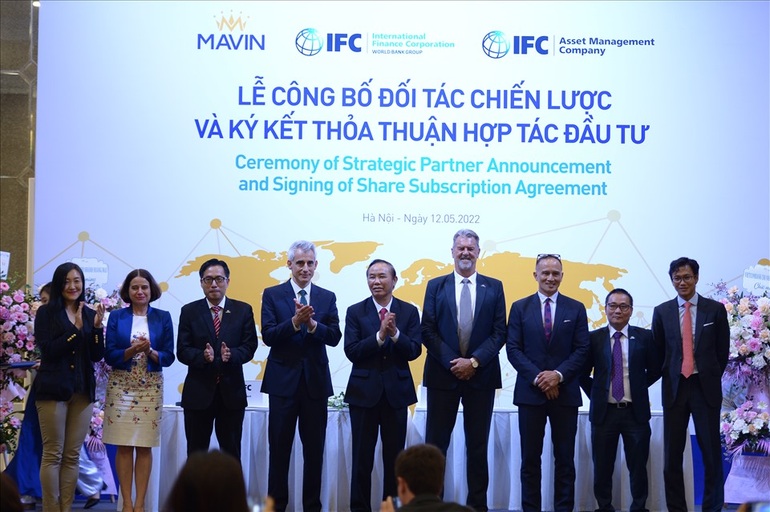This event is considered an important step to help Vietnam’s pig industry towards the goal of modernization and sustainable development.
Industrial pig farming brings many benefits
The most important weakness is that Vietnam’s livestock industry still follows the traditional pig raising model, so pigs are mainly raised in small farms, usually households. Households are usually farmers who learn from their grandparents and parents from their experience of raising pigs, but they do not have access to outside knowledge. Therefore, they will not know how to prevent and handle diseases. They also do not know the standards required by the market for food safety as well as biosafety. Therefore, when there is an epidemic or market crisis, it often causes a disruption in livestock production. At the same time, pigs in Vietnam do not have high standards, because they have not applied the technologies and knowledge related to food safety as well as biosecurity. Therefore, when there are larger companies involved in pig farming on a larger scale, the product will be of higher quality. At the same time, it makes it easier to control diseases, operate farming facilities better, and treat waste better. Since then, Vietnamese people enjoy better quality pork.

Vietnam has set out a strategy to develop the livestock industry towards a larger scale and more industrialization and modernization. This will create more jobs and, at the same time, have access to international standards on livestock production and animal welfare. For example, more jobs will be created, because more people are hired. Secondly, pigs will no longer be raised individually but in herds. At the same time, when raising on a large scale, pigs will be raised in very large cages. Raising pigs at home, the cage will be very small, so the pig will feel unhappy because there is no place to run, jump and exercise. While rearing in a large barn, the pig is free to move around, it will feel happier, more comfortable. Then, the quality of pork will be better and people will benefit more, better handle waste and environmental problems.
IFC supports Vietnam to develop sustainable pig farming
Under the agreement, the International Finance Corporation (IFC) and the IFC Emerging Asia Fund of IFC Asset Management Company will invest US$52 million in the form of common shares in Mavin Group Joint Stock Company ( Mavin Group).

Signed cooperation agreement to invest in modern pig farming in Vietnam on the afternoon of May 12.
This is an effort of IFC to help overcome the consequences of African Swine Fever (ASF) on the swine industry in Asia. This investment by IFC will support Mavin Group to develop high-quality breeding pigs and expand pig production capacity in Vietnam.
In addition to financial support, IFC will also advise and support Mavin Group to pioneer in improving animal welfare conditions, including implementing and applying the pig farming model in groups, helping to improve information raising standards in Vietnam, meeting and conforming to European standards on animal welfare. Mr. Daryll Dong, IFC’s Acting Country Director for Vietnam, Cambodia and Laos shared: “IFC’s investment in Mavin will contribute to strengthening the resilience of the Vietnamese pig industry by boosting production. along the chain to meet biosecurity standards and strengthen the production capacity of clean pork products.By supporting a leading enterprise in the pig food supply chain in Vietnam, Mavin Group, We hope to help increase Vietnam’s pork production capacity in a more sustainable way, meet industry best production standards globally, contribute to increased resilience, improve productivity productivity and enhance the competitiveness of the industry after the effects of African Swine Fever”.

IFC and the IFC Emerging Asia Fund under IFC Asset Management will invest US$52 million in common shares in Mavin Group.
IFC’s investment will support Mavin to develop three pig farms, including: A 62-hectare farm in K’Bang district (Gia Lai); 100 ha farm in Anh Son district (Nghe An); 45 ha farm in Cao Lanh district (Dong Thap).
With the support of IFC, by 2025, it is expected that the breeding herd of Mavin Group will increase to 7,500 pigs (GGP) and grandparents (GP), reaching a total of 15,600 pigs; The size of the broodstock herd (PS) increased to 72,000 heads, reaching a total of 87,400 heads. The increase in the number of breeding herds as above will increase the scale of commercial pig farms three times, reaching about 150 farms, increasing Mavin’s supply capacity to the market to about 900,000 pigs per year. .
“Our goal is to become a Manufacturer of safe, quality and nutritious food. That’s why Mavin Group wishes to attract resources to help rapidly increase production capacity and improve the quality of finished meat, best meet the market demand for safe and traceable food products.IFC’s support of financial resources, expertise and experience The experience will help Mavin Group become a leader in safe pork food processing, following the “From Farm to Table” value chain in Vietnam, helping Mavin Group to meet the best practices. producer of the best pig production in the world”, shared Mr. David John Whitehead, Chairman of the Board of Directors of Mavin Group.
“In addition, to meet the increasing demand for animal welfare in livestock, we will develop a model of group housing on Mavin’s farms, meeting With the support of IFC, we believe that Mavin will be one of the first companies in Vietnam to apply pig farming in groups, contributing to the replication of the breeding model. farming meets industry-wide animal welfare standards,” said David John Whitehead.
It is known that Mavin Group also received effective support from PwC Company (Vietnam), the exclusive financial consulting partner, who accompanied Mavin Group in the negotiation process with IFC to ensure the The investment meets all the requirements on appraisal and corporate governance.
